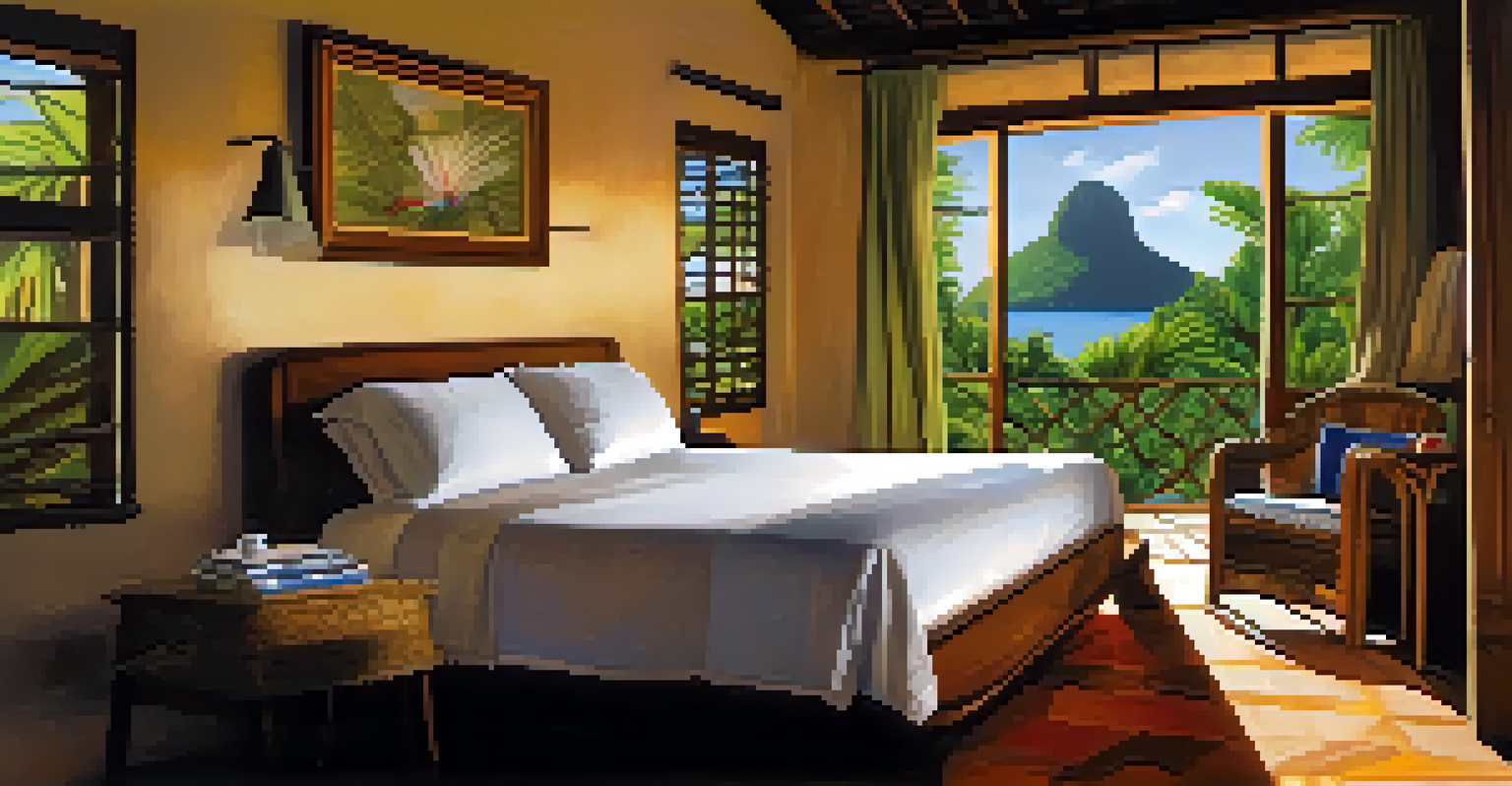Avoiding Mosquito-Borne Diseases While in Brazil

Understanding Mosquito-Borne Diseases Common in Brazil
Brazil is home to several mosquito-borne diseases, including dengue fever, Zika virus, and chikungunya. These diseases can cause serious health issues, making awareness essential for travelers. Knowing what to look out for can help you stay safe during your visit.
An ounce of prevention is worth a pound of cure.
Dengue fever, for example, can lead to severe flu-like symptoms and even hospitalization. Zika virus, although often mild, gained attention for its potential effects on pregnancy. Chikungunya, meanwhile, is notorious for causing debilitating joint pain.
Understanding these diseases and their symptoms can empower you to take necessary precautions. Being informed is the first step toward a healthier, worry-free trip.
Choosing the Right Time to Visit Brazil
Timing your trip can make a significant difference in your mosquito exposure. Mosquitoes are typically more active during the rainy season, which varies by region in Brazil. Planning your visit outside of this time can reduce your risk of bites.

For example, the rainy season in many areas is from December to March. If your schedule allows, consider visiting during the dry months when mosquito populations are lower. This strategy not only helps you avoid mosquitoes but also enhances your overall travel experience.
Awareness of Mosquito Diseases
Understanding mosquito-borne diseases like dengue, Zika, and chikungunya is crucial for staying safe while traveling in Brazil.
Ultimately, being mindful of the timing can help you enjoy Brazil's beautiful landscapes and vibrant culture while minimizing health risks.
Wearing Protective Clothing to Deter Mosquitoes
What you wear can be a crucial line of defense against mosquitoes. Opt for long sleeves and pants in light colors, as dark hues can attract these pests. Lightweight, breathable fabrics are ideal for staying comfortable in Brazil's warm climate.
The greatest wealth is health.
Consider treating your clothing with permethrin, an insect repellent designed for fabrics, to provide an extra layer of protection. This can be particularly effective in areas known for high mosquito activity. Additionally, wearing socks and shoes can help protect your feet from bites.
By dressing smartly, you can enjoy outdoor activities without the constant worry of mosquito encounters.
Using Mosquito Repellent Effectively
Using mosquito repellent is one of the most effective ways to prevent bites. Look for products that contain DEET, picaridin, or oil of lemon eucalyptus, as these ingredients are proven to deter mosquitoes. Apply the repellent generously on exposed skin and reapply as directed.
It's essential to remember that repellent works best when combined with other protective measures, like wearing appropriate clothing. Also, be mindful of applying it on children, ensuring you follow age recommendations on the product label. Always do a patch test if you're trying a new product.
Timing Your Visit Wisely
Visiting Brazil outside the rainy season can significantly reduce your exposure to mosquitoes and enhance your travel experience.
By making repellent a part of your daily routine, you can significantly reduce your risk of mosquito-borne diseases while enjoying the beauty of Brazil.
Staying in Well-Screened Accommodations
Where you stay can impact your exposure to mosquitoes. Choose accommodations that have proper screens on windows and doors, as this can keep these pests at bay. Air conditioning can also help, as mosquitoes are less likely to survive in cooler indoor environments.
Consider using mosquito nets while sleeping, especially in rural or less developed areas. These nets provide a physical barrier while you rest, ensuring a peaceful night without interruption from buzzing insects. Also, check for any standing water near your accommodation, as it can be a breeding ground for mosquitoes.
Selecting the right lodging is an effective way to create a safe haven during your trip.
Eliminating Standing Water Around You
Mosquitoes breed in stagnant water, so being proactive about eliminating standing water can reduce their presence. If you're staying in a place with a garden or patio, regularly check for and empty any containers that might collect water, such as pots or buckets. This simple action can have a significant impact on local mosquito populations.
When exploring areas of Brazil, be mindful of natural standing water sources, such as ponds or marshes, and try to avoid lingering near them. This is particularly important during dusk and dawn when mosquitoes are most active. By being vigilant, you can help protect not just yourself but also the local environment.
Protective Measures Are Key
Wearing protective clothing, using effective mosquito repellent, and choosing well-screened accommodations can greatly minimize the risk of bites.
Taking these steps contributes to a more enjoyable, mosquito-free experience in Brazil.
Staying Informed About Local Outbreaks
Before and during your trip, stay updated on any local outbreaks of mosquito-borne diseases. Health organizations and local authorities often provide information on current health risks, which can help you make informed decisions. Being aware of the situation allows you to take necessary precautions or even alter your plans if needed.
Consider downloading travel apps or following local health departments on social media for real-time updates. Engage with other travelers or locals to share information on mosquito activity and safety measures. This community approach can enhance your safety during your travels.

Staying informed is a key strategy in avoiding mosquito-borne diseases while fully experiencing the richness of Brazil.